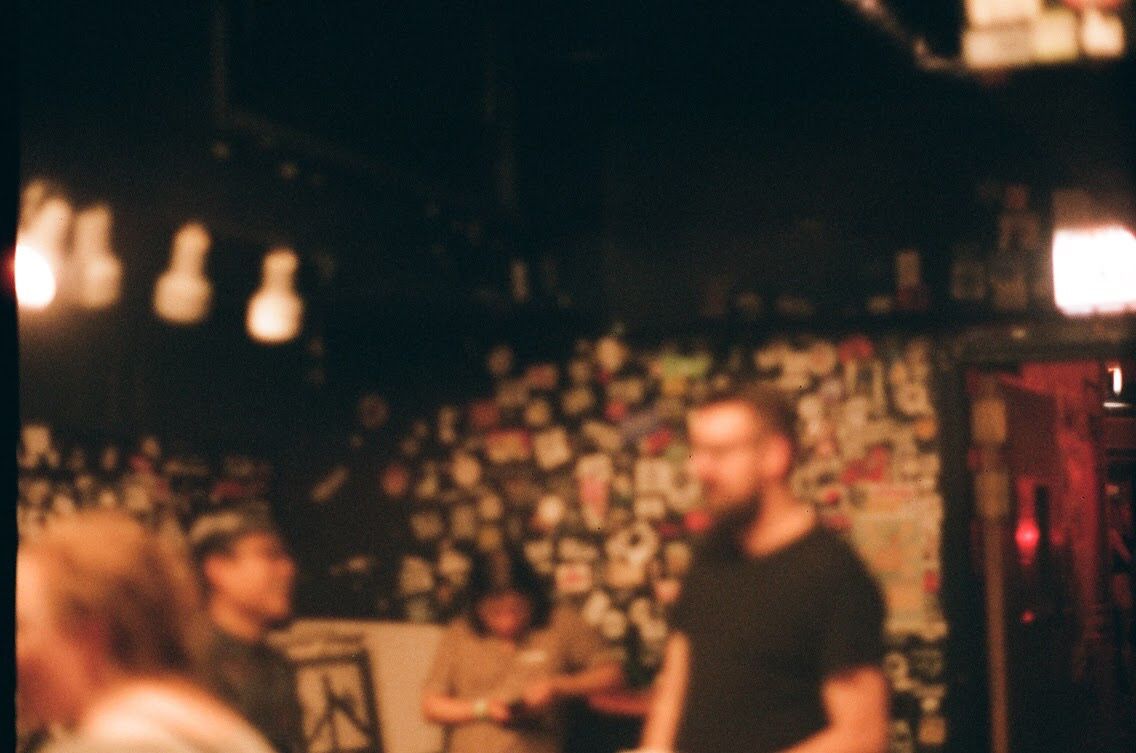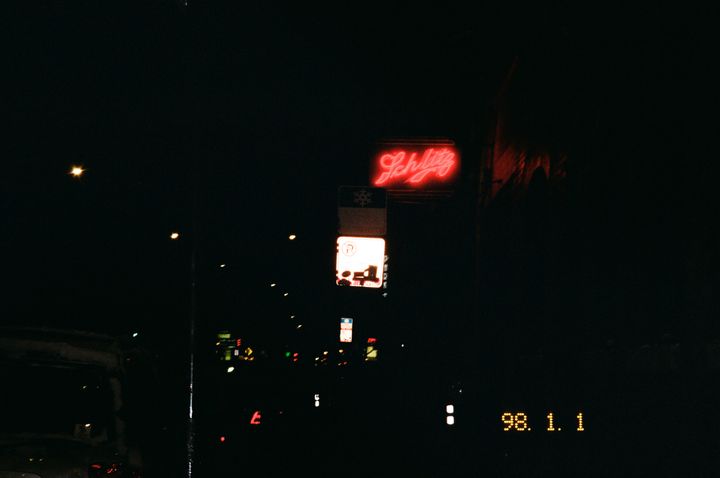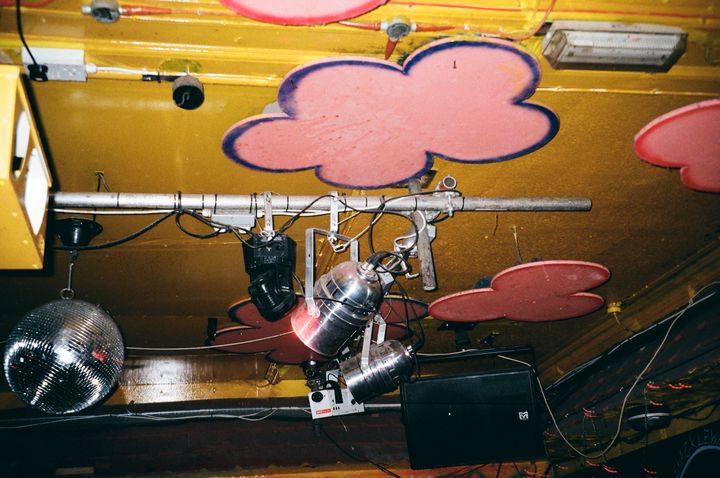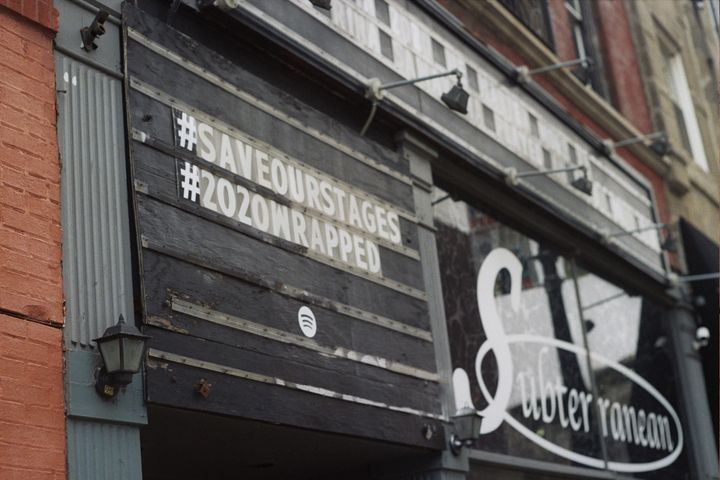on camp cope
A band I loved broke up. Here’s a story about me.

In May of 2018, I finished college. I was 20 years old. I moved out of my last minute, much too expensive sublet in Lincoln Park and back to my parents’ house that June. I had to finish up an internship at a nonprofit music school that required me to go from the southwest suburbs all the way to the end of the brown line. It took hours. I woke up at 5 AM and did it three days a week for no money that whole summer.
At the end of the first month of this internship, I found myself in a sort of true emotional free fall. It was the beginning of a panic. I had a degree in an industry I wasn’t interested in pursuing. I lived with my parents again. I couldn’t even drink legally. I was dating a guy who lived in LA and each day closer to the end of the summer was another day closer to having to admit to him— and myself— that I could not move there.
Was it an overreaction to feel like my life was over? Yes. But I was 20 and I couldn’t see a path forward. I had no plan. This was the beginning of about 5 years of the kind of career panic that is, in a lot of ways, the constant undercurrent of my newsletter.
I started to look for any excuse to go into the city to feel like I wasn’t fully the child I was before I left my childhood home. On June 24th, Camp Cope played at Beat Kitchen so I borrowed my mom’s car and drove it up to Roscoe Village.
On the way there, I cried on from the moment of merging from the Stevenson Expressway onto the Kennedy all the way to Damen Avenue. I parked in a Walgreens parking lot and tried to fix my makeup, but I was there alone and I knew I’d leave alone. Besides, I was already late.
Camp Cope had put out How To Socialise and Make Friends in the spring and it sat on my record player for months. I loved it. Everything about them as a band made me like the music more. They were angry, cool, funny, unconcerned— a million things I wanted to be more like instead of the person I actually was. In reality, I was a girl who sunk years into a relationship 2000 miles away and now had nothing to show for it except no friends in the city she lived in and a preference in 35mm film.
I like that record even more now than I did back then.
I walked up to the bouncer at Beat Kitchen and gave him my vertical, under 21 drivers license. He smiled and, instead of telling me flatly not to leave the back room where the show was happening, he said to me, “almost there.” He then drew two Xs on the back of my hands for the last time at that place.
I remember standing alone in that packed room— on the left side of the stage away from the stairs where I always stood— and singing along with the other girls in the front. It was so warm and joyful in a moment that felt so deeply terrible for me personally. Maybe that could have come from seeing any band at that moment, but they always felt special. I cried a lot. I probably wouldn’t have driven that distance if I didn’t know I’d get the cry I needed.
Camp Cope is, of course, a band of people very concerned with gender equity in music and the treatment of women in general. I always liked the lengths they’d go to support their convictions, but my relationship with the music wasn’t necessarily one of inspiration in the sheer act of representation. (Though it quickly got tiresome when the all male punky bands I loved would seemingly pick their Token Woman and tour repeatedly with that One Token Woman until they eventually tired of that one and got a new one.)
I think I just felt for a long time that I didn’t necessarily need to be shown women doing stuff as an empowerment tool. In fact, I probably take for granted the amount of brilliant, show stopping women I’ve been surrounded by for my entire life. I didn’t necessarily seek out art with that energy because all of my complex relationships as a young person were with women. I always had more complicated relationships with my mom and my sisters and aunts and grandmothers and the girls I grew up with than I ever had with men. I also grew up with an eating disorder that was exacerbated by the sort of conversation that was rampant within my family and my friend groups. Women became a point of comparison in a way that destroyed me for a long time. I was resentful.
I think what listening to Camp Cope presented me with— through the power of perfect bass lines and angry Australian accents— was not just women doing something cool, but women that seemed so fiercely devoted to their non-male friends, family and peers. Their friendship and care emanated from every part of their band— the album art almost always featuring photos of them, the way they talk to each other online, Georgia shouting “show em Kelly!” It’s all beautiful, it’s all part of it.
They displayed for me some kind of proof that womanhood didn’t have to be something to suffocate under. I didn’t have to try to get away from it, I just had to find my place within it.
That summer I didn’t move to LA and instead would move in with my best friend in a shitty apartment in Chicago that I loved because she was there. I started making zines, I started writing, I started meeting people that I’d go on to become close with in the years since. I became a recognizable version of myself in the years after that show.
I won’t credit a band for my personal growth, but whenever I think of Camp Cope I do think of the person I was that last time I saw them play. I think of how scared and isolated I felt outside of their Beat Kitchen show. Then I think of all the time I’ve spent in living rooms with some of the kindest, coolest women I’ve ever met and how I don’t feel any of the anxiety or insecurity that my 20 year old self would have felt. Seeing them play that show feels like the starting line of changing my relationship to women and, ultimately, to myself.
RIP Camp Cope. I bought leggings with stripes down the side seam because I thought you looked cool.
Miranda Reinert is a music adjacent writer, zine maker, podcaster and law school drop out based in Philadelphia. Follow me on Twitter to hear about other times I went to Beat Kitchen: @mirandareinert. You may also just send me small bits of money at @miranda-reinert on venmo if you want. As always, thanks for reading!



Comments ()